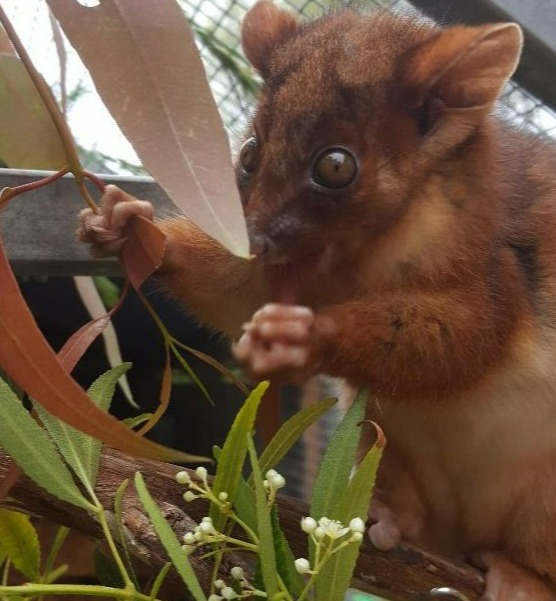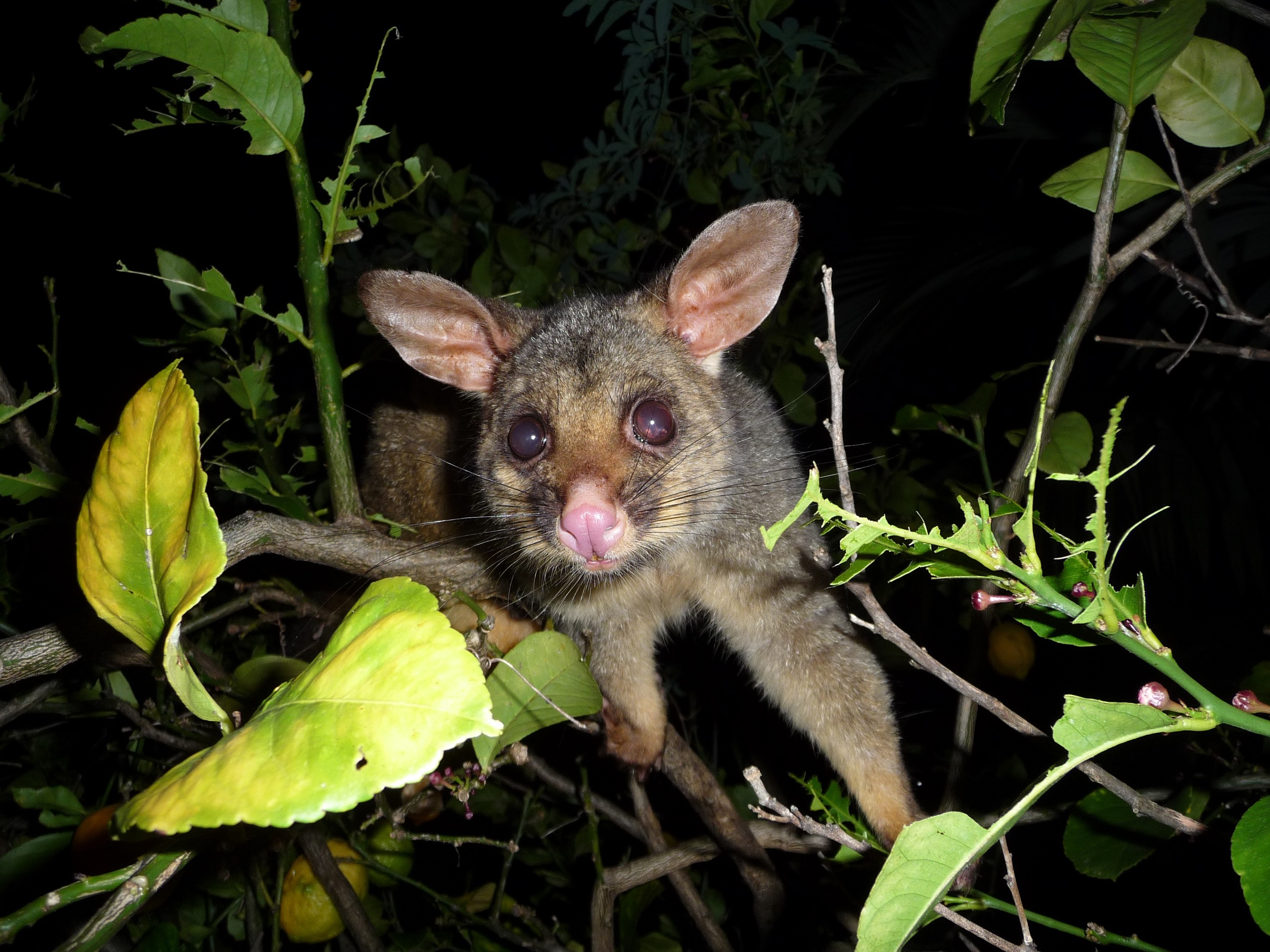Brushtail Possums
Common Brushtail Possums (Trichosurus vulpecula) is one of the most readily recognisable marsupials found throughout Greater Sydney. Highly adapted to urban environments, it is not uncommon for Brushtail Possums to take up residency in backyards, making nests in tree hollows, and - occasionally - the odd roof cavity. Approximately the size of a domestic cat, Brushtails are grey in colour with an elongated snout, pink nose, large ears, long whiskers, and sharp claws used for climbing.
Behaviour
Brushtails are nocturnal animals, which means they are active at night and sleep during the day. In the wild, they commonly feed on leaves, flowers, and fruit. However, in urban areas they are known to be highly inventive and resourceful, feeding on whatever they can find, including household scraps, fruit trees, and vegetable gardens.
Habitat
Brushtail Possums are solitary creatures who live within a home range, which they mark out with their scent. While not typically aggressive, Brushtails are territorial and may attack another possum who encroaches on their range. For this reason, it is very important that Brushtail Possums are not removed or relocated from their territory. A Section 121C permit may be obtained from National Parks and Wildlife Services to trap possums while structural repairs are completed to prevent possums from accessing roofs.
Council is not responsible for the removal or relocation of possums on private property. If you have a possum on your roof or causing issues on your property, we recommend you contact WIRES on 1300 094 737 for referral to a licensed and reputable possum handler in your area.

Ringtail Possums
Ringtail Possums (Pseudocheirus peregrinus) are smaller than their Brushtail counterparts and can be distinguished by their long, thin, white-tipped tails which they use as a fifth limb to help them climb and maneuver their way through the treetops. They are active at night and will sleep through the day in a spherical nest called a 'drey'. Ringtails feed on the leaves of both native and introduced trees, as well as flowers and fruit.
What can you do
Like many native animals, possums have been impacted by urbanisation and much of their original habitat has been cleared for development. Possums, parrots, and other small fauna depend on tree hollows for a safe place to rest, away from predators. Possum boxes can be built, or purchased from the Council's Nursery, and installed in your backyard to provide a safe haven for possums and deter them from nesting in your roof or walls.
Please remember:
- Possums are protected in NSW. Any harm caused to them will attract significant penalties and/or prosecution.
- Possums are territorial and must not be removed from your property.
- A Section 121C permit may be obtained from the NSW National Parks & Wildlife Service to trap possums while structural repairs are completed to prevent possums from accessing roofs etc.
- If you need to relocate a possum on your property, contact WIRES on 1300 094 737 for a referral to a reputable possum handling service in your area.
- If you need to re-home a possum on your property, possum houses can be purchased at the Council's Nursery.
